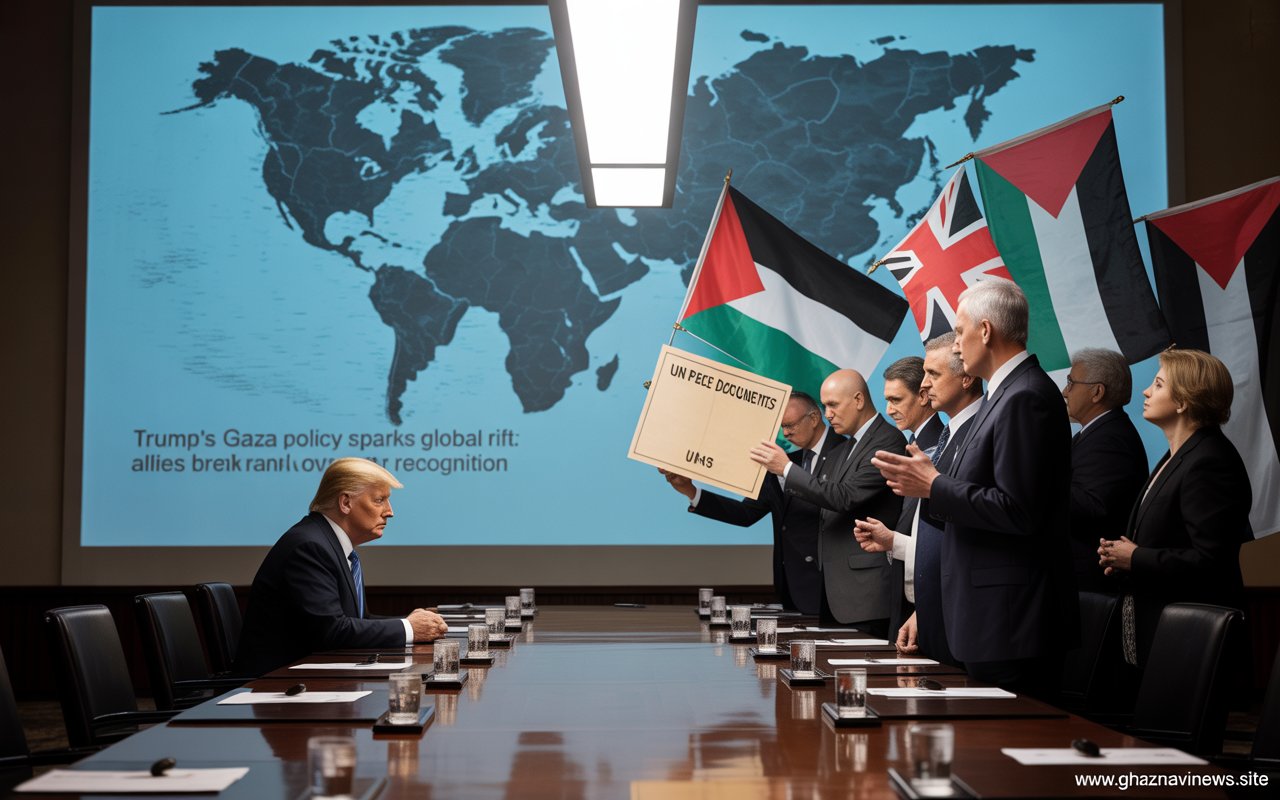
Gaza Diplomacy Fractures U.S.-Allies Unity as Trump Rejects UN Summit
Trump’s Gaza Policy Sparks Global Rift: Allies Break Rank Over Palestine Recognition
The international stage is witnessing a tectonic diplomatic shift. As the U.S. doubles down on its staunch pro-Israel stance under Donald Trump, key allies — Canada, France, and the UK — have aligned themselves to formally recognize Palestine, further deepening the fracture between Washington and the rest of the West.
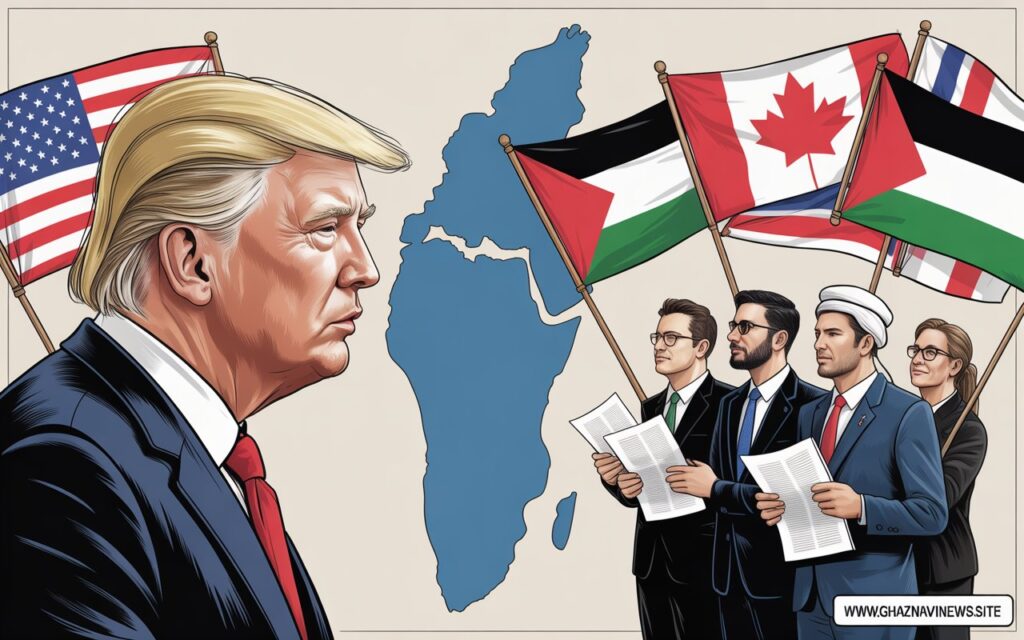
The diplomatic rift was spotlighted during a French-Saudi led UN summit in New York advocating a two-state solution for the Israel-Palestine conflict. While Canada became the latest to commit to recognizing Palestine, the U.S. labeled the summit a “publicity stunt,” refusing to attend and reaffirming its unflinching loyalty to Israel.
Trump’s administration has failed to offer a credible vision for Gaza’s future governance post-conflict. While previous Secretary of State Antony Blinken had laid out foundational principles for post-war Gaza — no forced displacement, no Israeli reoccupation, no siege, and a Palestinian-led government — the Trump White House dismissed these goals outright.
Instead, Trump floated a bizarre, now-abandoned concept of turning Gaza into a “Middle Eastern Riviera” through population relocation — a plan widely condemned by Arab states and international law experts alike.
Despite mounting pressure, the administration remains evasive about its Gaza endgame. When pressed on details, a State Department spokesperson deflected, claiming unnamed regional partners were developing the President’s so-called “new ideas.” No specifics were provided.
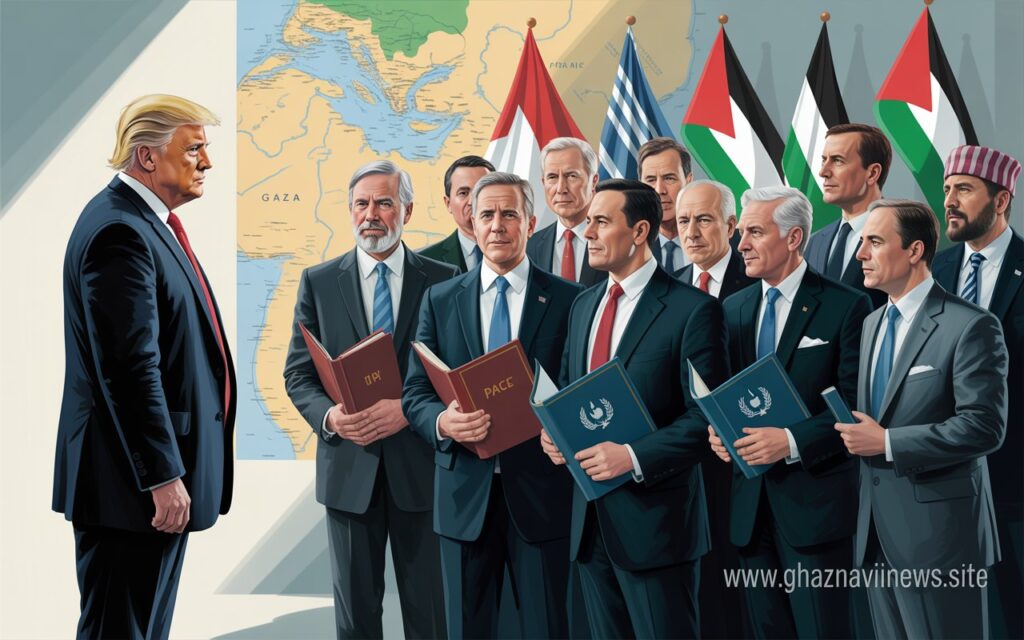
This hesitation has left a leadership vacuum, increasingly filled by European and Arab countries pushing for concrete steps toward Palestinian sovereignty.
In sharp contrast, Israeli Prime Minister Netanyahu has flatly rejected any role for the Palestinian Authority in Gaza’s governance, aligning with far-right demands for continued military control and settlement expansion.
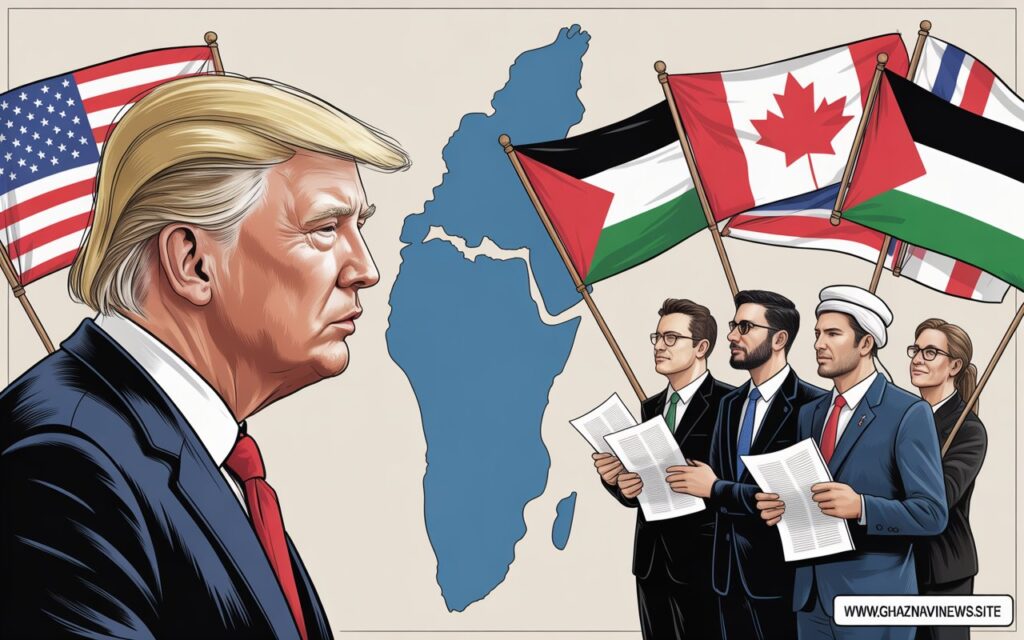
The result is a growing divergence: while America’s oldest allies embrace diplomatic evolution, Trump’s administration clings to an outdated, one-sided strategy — isolating the U.S. in one of the world’s most urgent geopolitical crises.
Why did the U.S. boycott the recent UN summit on Gaza?
The Trump administration called the summit “anti-Israel” and a publicity stunt, rejecting participation in discussions centered on recognizing Palestine and reviving the two-state solution.
Which countries have recently committed to recognizing Palestine?
France, the United Kingdom, and Canada have announced plans to formally recognize Palestine as part of renewed diplomatic efforts for a two-state resolution.
What is Trump’s long-term strategy for Gaza?
There is no clear long-term plan from the Trump administration. Earlier ideas, like forced relocation and turning Gaza into a “Riviera,” were widely rejected and later abandoned.
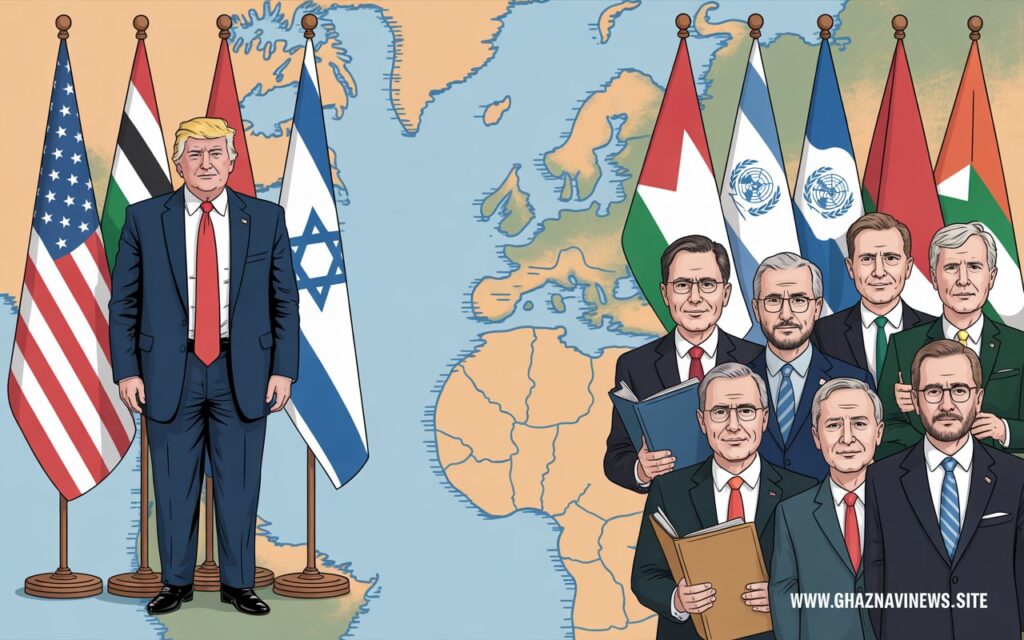


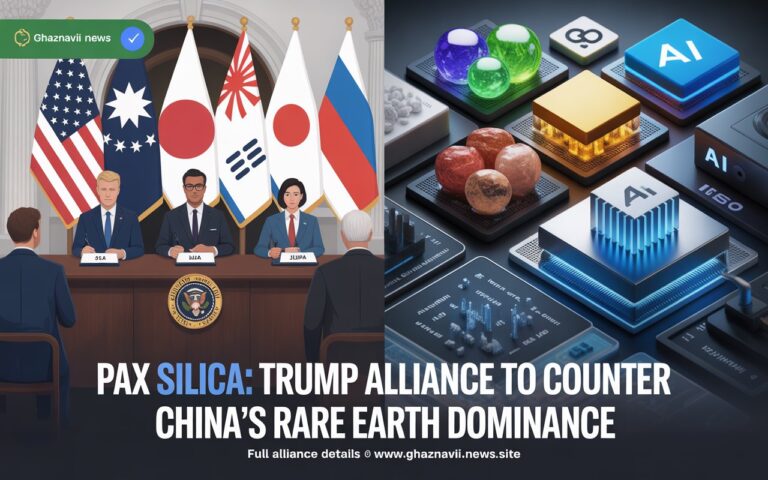







[…] Also Read News Of Gaza War […]
[…] Read More […]